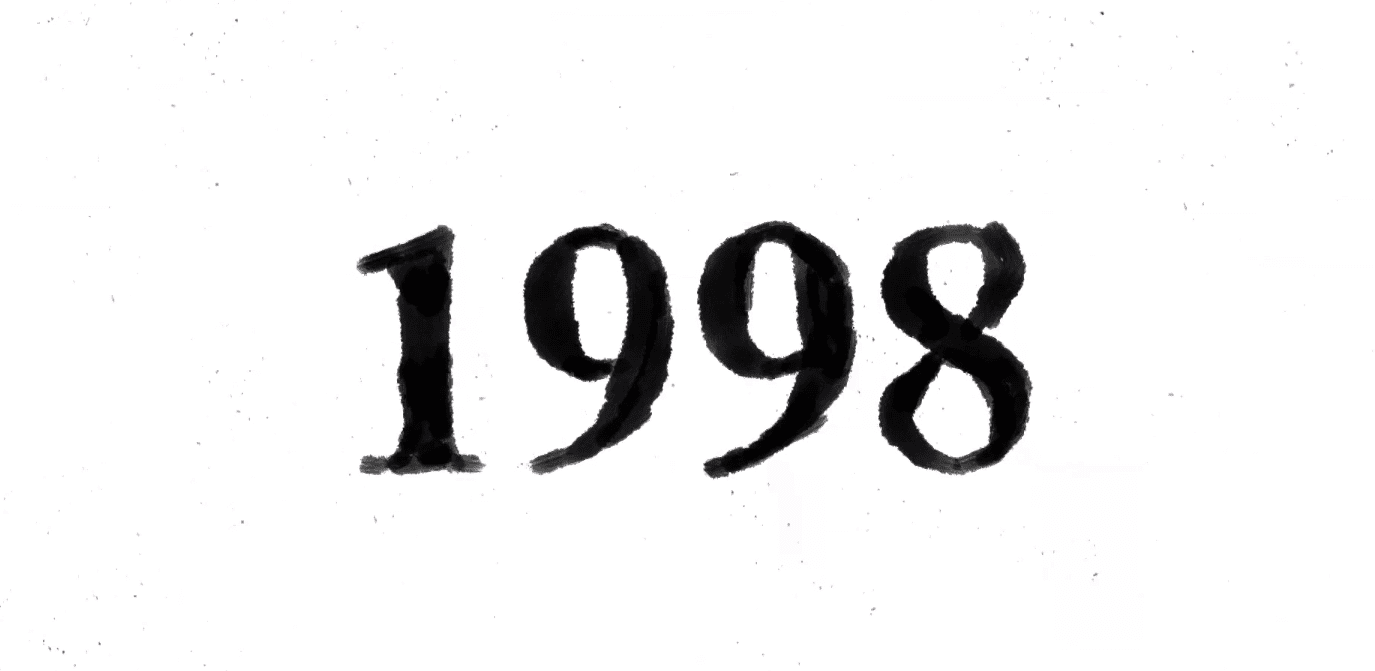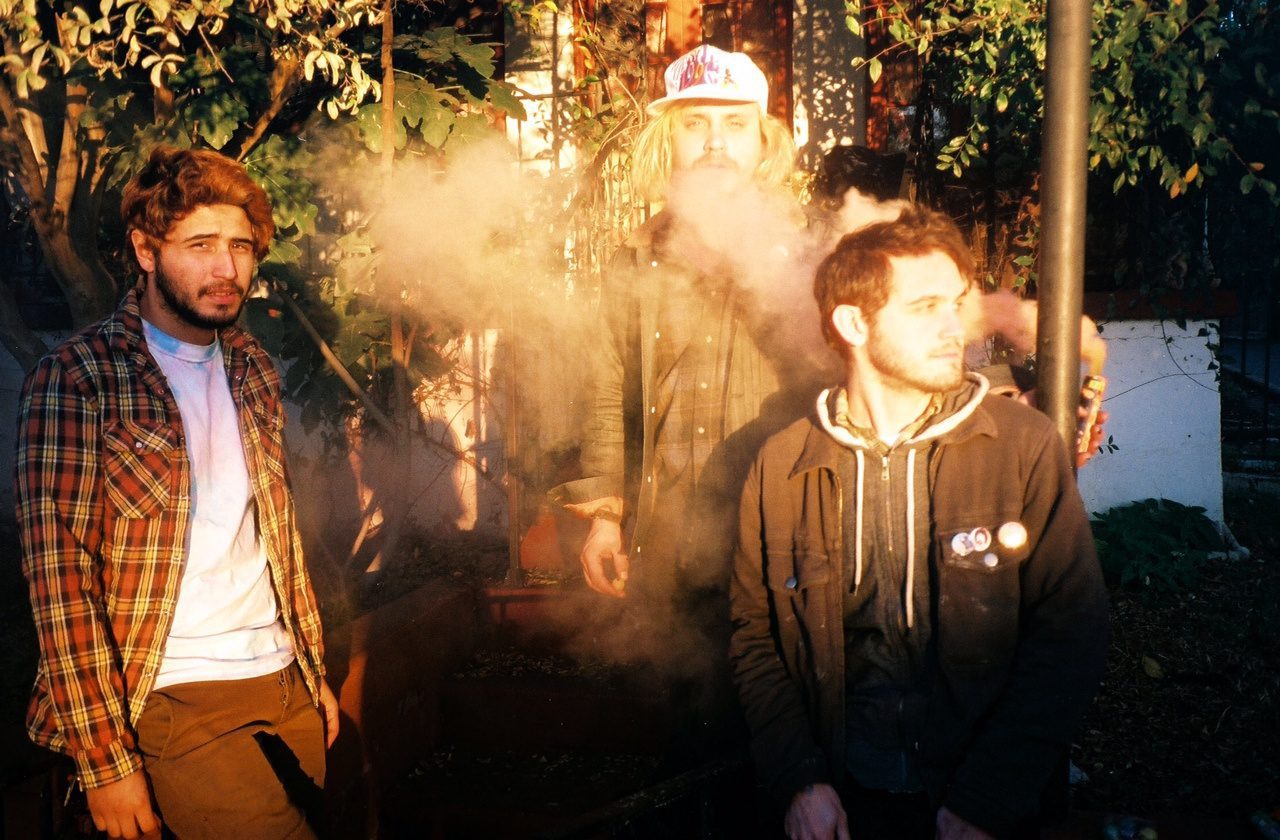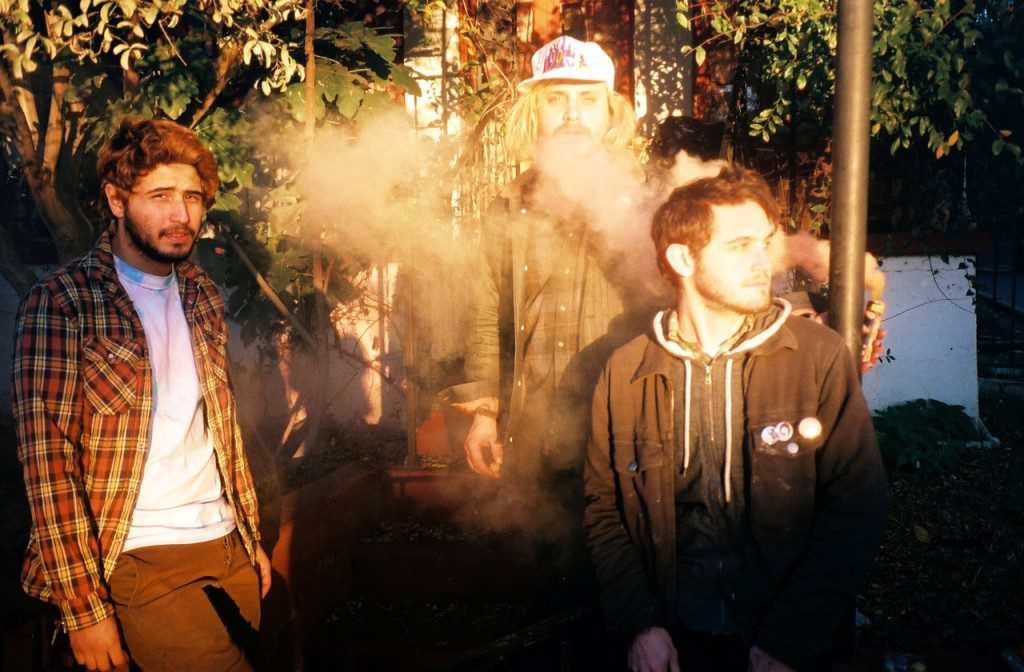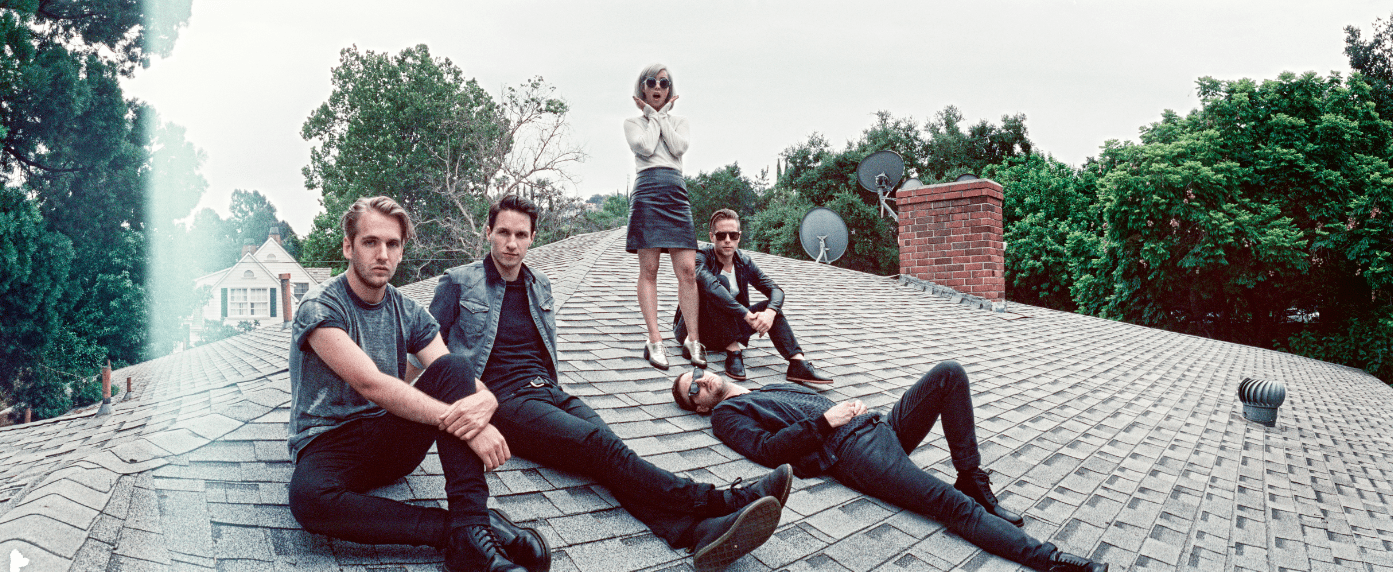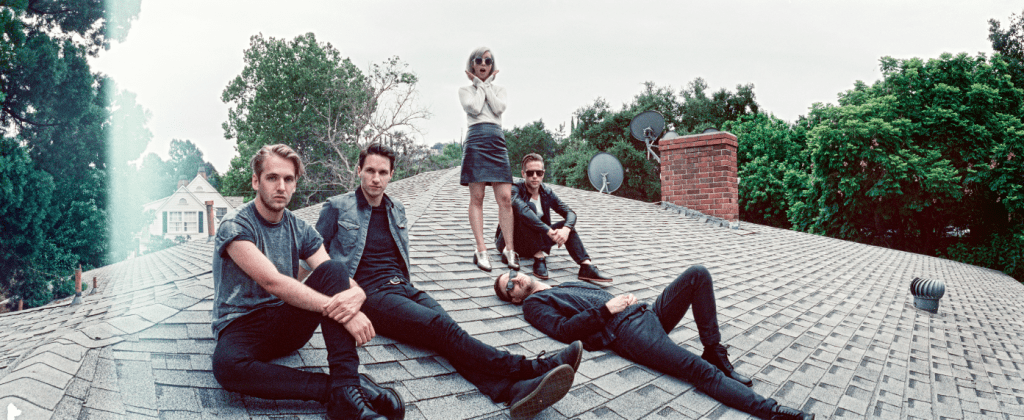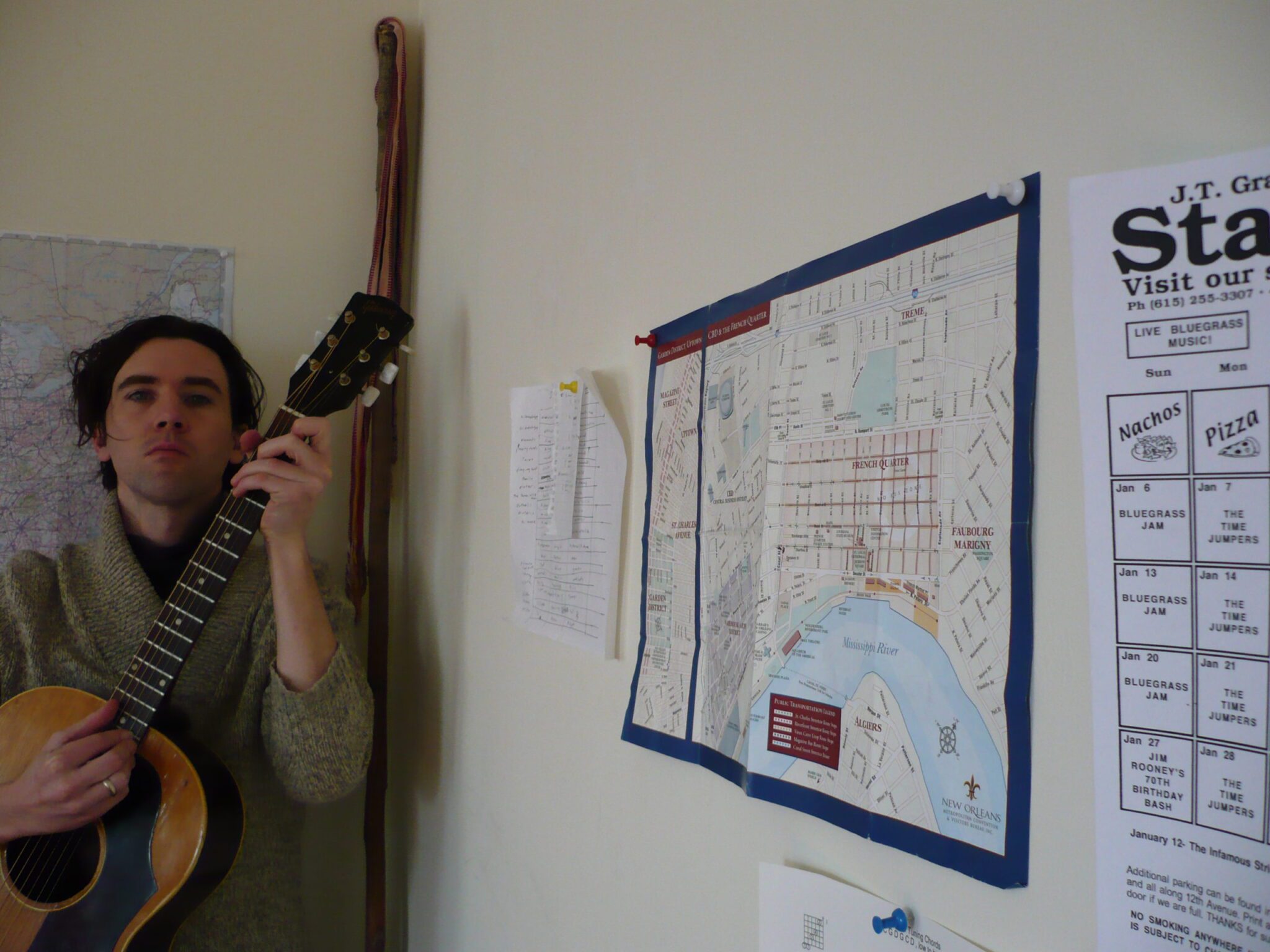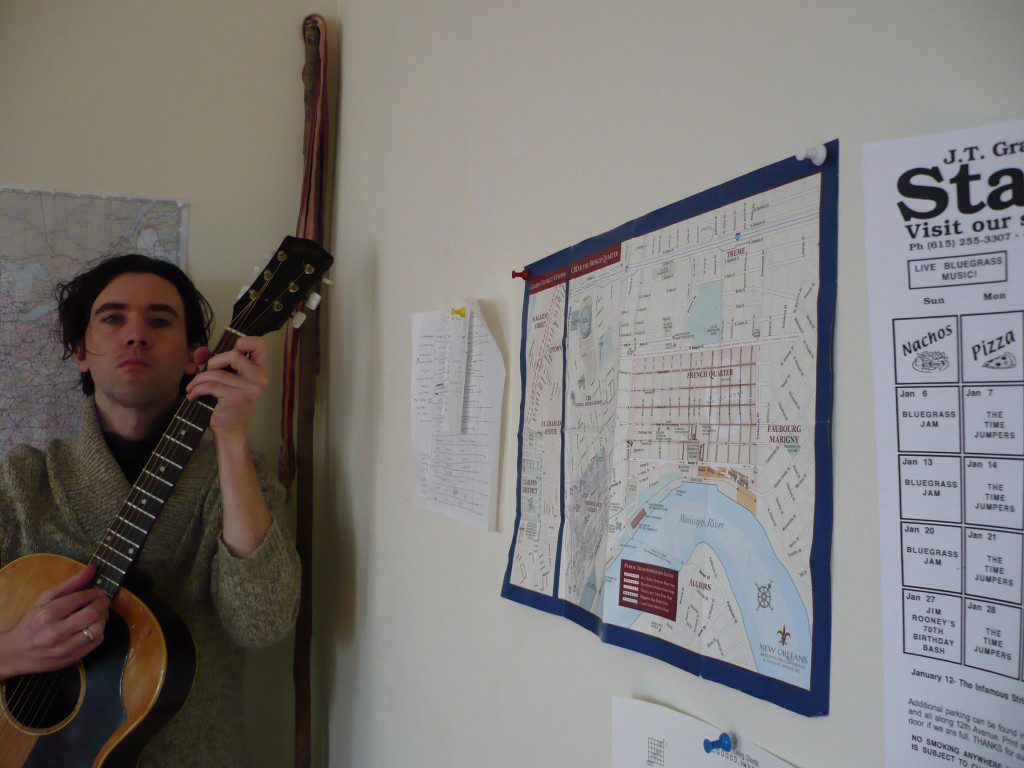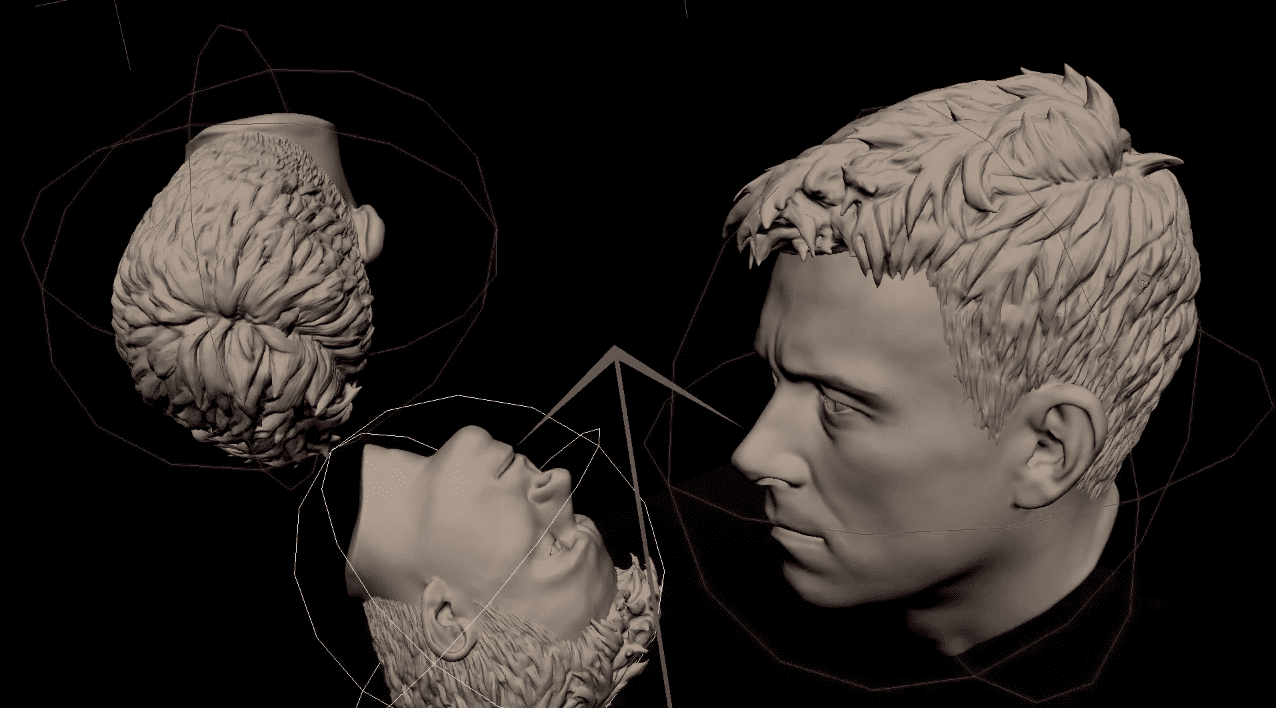
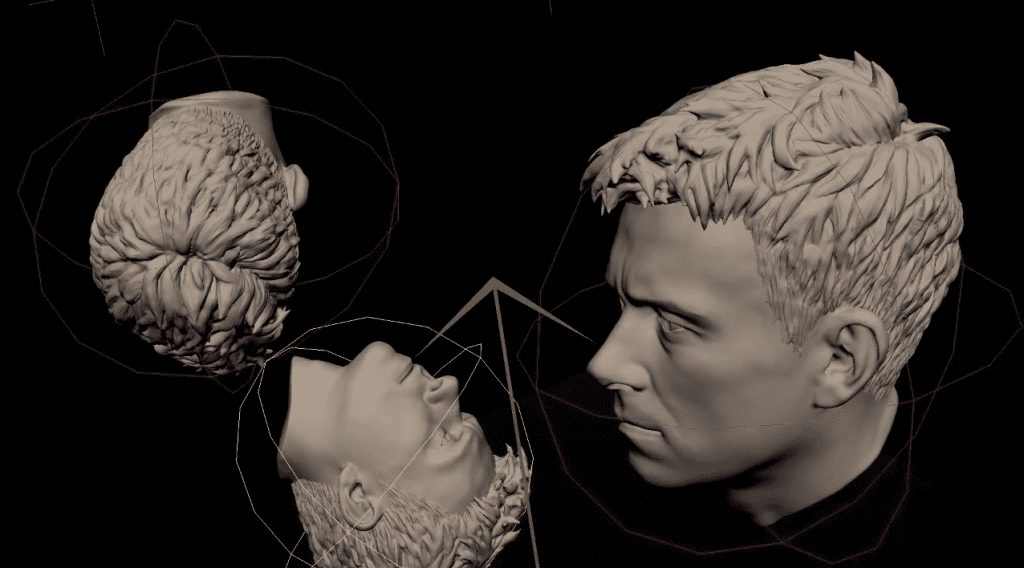
The video for ”Everyday Robots,” off Blur frontman Damon Albarn‘s forthcoming solo debut, is as minimalist and hypnotizing as the song itself. The imagery’s progression shows the slow creation of a digitalized portrait of Albarn—first a skull forms, with a gold front tooth, mouth and eyes take shape out of what looks like red putty, abstract tubes turn to neck muscles that stretch over the skull’s face. Once completed, the Alburn turns grey and two more identical copies appear, bouncing back and forth along the parameters of a white backdrop, like images floating across a computer screensaver. The video’s design is richly detailed and extremely fun to watch, thanks to creative designer Aitor Throop, but comes off a little clinical—and overstated—given the music it’s matched to.
“We are everyday robots on our phones,” Albarn sings, over a looping stanza of clock-like electronic rhythms and violin trills. The lyrics cast long shadows over a society of alone people, working always towards greater isolation and more total immersion in virtual reality. It’s an unspecial gimmick. Who hasn’t griped about technology dependence? The song, like a piece of Danish furniture, is gorgeous but manicured to hell. Albarn’s voice has always had an impassive transparency to it that helped him sing sentimental lines without overloading on theatricality, but with material so streamlined and dispassionate, the vocals are frigid.
I’m trying to imagine this song pinned against a more obvious kind of music video, something more recognizable as a story line—cold, gray cities, maybe, cars on a highway, Albarn standing still as a blurred crowd rushes by. It probably wouldn’t be as good as the video is in its current form. The details, like the ridges along the skull’s bone and the sporadic, and how machine-ishly the head swivels, offering each of its angles to best advantage, are stunning. The perspective from inside a computer, though—when lopped on top of the subject matter of the song and the pulsing electronic beats—are too much. Especially so when, at the end, the rhythm moves from basso continuo-status up to the foreground of the music, recalling a heart monitor machine, with all of its connotations of melodrama. It’s just so damn serious.
Pop songs that wrap a moral into themselves always walk a tricky line. Of course the music has a history of social involvement. Protest music, jazz, reggae, and soul all arguably emerged in response to a need for music to enact social reorganization. Popular music harnesses large groups of people into an action because of its singalongability, so it’s interesting that both “Everyday Robots” and our next video, “The Apple (For Alan Turing)” repeat melodies and lyrical phrases. Vagueness works well in pop, too: lyrics are short, bendable, mishearable; key shifts can be interpreted according to mood, and what the music means is often linked to a memory or association unique to the person listening to the music. Conversely, when something is so fixedly about what it’s about as “Everyday Robots” is about technological development in society, the scope of the song feels rigid and loses much of its power to surprise us, to be free-flowingly beautiful rather than just, as “Everyday Robots” is, pretty.
If “Everyday Robots” has too much distance from its subject to be compelling, the opposite may be true of Fiction’s “The Apple (For Alan Turing),” which would, I think, gain a lot of precious ambiguity by simply removing the parenthetical. “The Apple” is a retelling of UK mathematician and very early (1950s!) programmer and code-writer, who chose chemical castration over jail time when he was convicted of gross indecency for his homosexuality. In a nod to the Snow White fairy tale, which he loved, Turing killed himself a few years later with a couple of bites of an apple that he’d shot full of cyanide. “Everyday Robots” trends futuristic; this song takes us back, and the video is a black-and-white, home video-like representation of the day of a man’s life. The man—Turing, evidently, because we see him writing equations on a blackboard—goes running through a field, pours wine, has a conversation with a chain-smoking, nervous-looking younger man, and turns to hold eye contact with the camera when the lyric “The code was really nothing much and I just took a bite” comes along. The video is preceded by a full reproduction of a note written by Turing after he learned that he was going to be taken to court.
This video takes us into the details of Turing’s life with as much fidelity as the song itself does, and pound for pound, that’s a lot. It’s fairly common for indie bands to make songs or whole albums that dwell on one historical person, or in a general past era—Neutral Milk Hotel’s In the Aeroplane Over The Sea was reportedly believed to be inspired by the life of Anne Frank, and Jus Post Bellum recently released Oh July, which followed the lives of a working class married couple living during the Civil War—but Fiction’s track, especially taken alongside the video, leaves little to the imagination. Had they not named Alan Turing in the title, though, the lyrics would be more provocative than biographical. Some lines, like “They’ve been making my mind up, they’ve been turning my body into something it’s not” come across lushly, with the vocal line making its ascent to the highest point in the piece and then cascading downwards on the word “not.” Out of context, they’re intriguing. I would much prefer to have to do some of my own digging to link the song to Alan Turing, rather than see it stated. After all, Neutral Milk Hotel never confirmed that their album really was about Anne Frank. In pop music, the payoff of cultivating mystery is pretty remarkable: ambiguities in songs fade into questions that cult fans can compare evidence over for decades.
The last cut on Fiction’s 2013 debut album, “The Apple”’s subject matter holds relevance today, too. Turing received a posthumous Royal Pardon only this Christmas. But though a reminder of Turing’s story is certainly appropriate in a year of equal rights setbacks and breakthroughs in almost the same measure, the song reads mostly like a love story to Turing’s specific case. The individual admiration on this track is very compelling—though the video is a little lackluster—and I’d forgive the vocal lines here almost anything. Softened with a shimmering, lightly electronic backdrop, Mike Barrett and James Howard’s vocal harmonies emerge with a beautiful delicacy, and a real sense that love is propelling the song.
